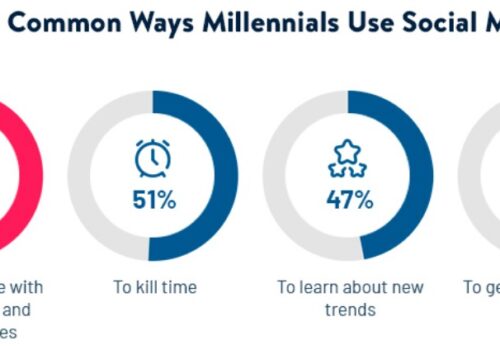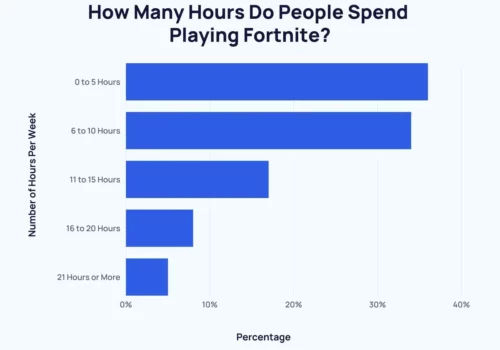Voice search technology, where users speak into a device instead of typing queries, is rapidly transforming how we interact with our digital devices.
From smartphones and smart speakers to various voice-activated systems, the convenience and efficiency of voice search are driving its popularity to new heights.
As technology advances and becomes more integrated into our daily lives, understanding the trends and statistics behind voice search is essential.
These insights not only reflect current user behaviors and preferences but also forecast the future trajectory of digital interactions, e-commerce, and information retrieval.
Let’s Find Key statistics surrounding voice search, offering a glimpse into its widespread adoption, the technology’s accuracy, and its significant impact on both consumers and businesses alike.
| Statistic | Value |
|---|---|
| Voice assistants in use (Current) | 4.2 billion |
| Projected voice assistants by the end of 2024 | 8.4 billion |
| Voice search query accuracy | 93.7% |
| Monthly voice searches | Over 1 billion |
| Daily voice search usage among adults | More than 50% |
| Voice search on mobile | 27% |
| Voice search results from featured snippets | More than 40% |
| Average voice search result page load time | 4.6 seconds |
| Google App voice searches | More than 20% |
| Consumers using voice search for local business | 58% |
| Daily voice search usage among US adults | 41% |
| Smart home devices supported by Google Assistant | More than 30,000 |
| Preference for Apple’s Siri among voice assistants | 45.1% |
| Expected voice shopping market | $40 billion |
| Voice assistant users (Projected for 2023) | 125.2 million |
| Increase in voice search result speed compared to the average | 52% faster |
| Exact keyword match in voice search title tag | 1.71% |
| Popular digital assistants usage (Google Assistant & Apple’s Siri) | 36% each |
Voice Search Statistics In General
Sources: Pexels
- According to ComScore, voice searches will account for 50% of all searches by 2020. (Would this be a voice search post if you don’t start with this factoid?)
- According to Gartner, by 2020, over 30% of all inquiries will be conducted without the use of a screen.
- According to OC&C Strategy Consultants, 13% of all American households possessed a smart speaker in 2017. By 2022, that percentage is expected to grow to 55%.
- According to Activate, there will be 21.4 million smart speakers in the United States by 2020.
- According to Technavio, the voice identification market will be worth $601 million by 2019.
- According to Edison Research and NPR, one out of every six Americans (16%) owns a voice-activated smart speaker.
- According to Alpine.AI, there were approximately 1 bn voice searches each month in January 2018.
- Voice search assistants successfully answer an average of 93.7% of search queries.
- There are over 1 billion voice searches every month.
- Voice search results load 52% faster than average search results.
- Only 1.71% of exact keywords appear in the title tag of voice search results, indicating Google’s comprehensive page scanning for relevancy.
- 4.2 billion voice assistants are currently in use, with a projection to hit 8.4 billion by the end of 2024.
Usage Stats for Voice Search
- According to Google, 52% of customers put their voice-activated devices in their living rooms. They’re kept in 25% of people’s bedrooms, whereas 22% put them in their kitchens.
- A voice-activated assistant speaker was used by around 35.6 million Americans at least once every month in 2017, up 128.9% year over year.
- One out of every four shoppers utilized voice assistants during the 2017 holiday shopping season.
- According to Google, 72% of consumers who possess voice-activated speakers claim they utilize them in their daily lives.
- Mobile voice searches are three times more inclined to be local than text searches.
- 65% of those who possess a Google Home or Amazon Echo can’t envision going back to a time before they had a smart device.
- 41% of individuals who possess a voice-activated device say it feels like they’re talking to a buddy or another person.
- Over 50% of adults report daily use of voice search.
- 27% of individuals engage in voice search on mobile devices.
- Approximately 58% of consumers use voice search to find local businesses.
- More than 20% of searches in the Google App are conducted via voice.
- More than 40% of voice search results originate from featured snippets.
Stats on Voice Commerce
Sources: Pexels
- According to OC&C Strategy Consultants, voice commerce revenues surpassed $1.8 billion last year. They’re expected to be worth $40 billion.
- According to Edison Research, 22% of smart speaker owners in the United States have purchased something with their devices.
- According to Moffett Nathanson, 3.5% of consumers utilize audio shopping, but that figure could rise to 50% by 2022.
- According to OC&C Strategy Consultants, grocery shopping constituted 20% of voice shopping in 2017. This was in comparison to clothing shopping, which represented only 8% of the total.
- 52% of voice-activated speaker users want to hear from brands about offers, sales, and promotions. 39% want more options for finding business information.
- 1 in 5 consumers (19%) has made a spoken purchase via Amazon Echo or some other digital home assistant, & another third (33%) plans to do so in the coming year.
- 56% of users have utilized voice search to inquire about a business or brand via smartphones.
- The restaurant/cafe sector leads in voice search inquiries at 51%, with grocery stores and food delivery also highly searched.
- 4% of consumers globally use voice search to play music, while 66% use it to check the weather, indicating a broad application of voice search beyond commerce.
- 33.2 million US consumers have shopped using smart speakers, showcasing the growing trend of voice commerce.
FAQs
📈 How many voice assistants are in use today?
There are 4.2 billion voice assistants being used globally, with expectations to double by the end of the year.
🔍 How effective are voice search assistants at answering queries?
Voice search assistants successfully answer 93.7% of search queries on average.
🚀 How is voice search changing shopping habits?
Voice search shopping is expected to exceed $40 billion, indicating its growing influence on consumer purchasing decisions.
🌍 Which countries are leading in voice search adoption?
The US is a major player, but adoption rates are increasing globally, with countries like China seeing significant use of voice search for e-commerce.
🎧 How are smart speakers changing the home environment?
With increasing numbers of people owning smart speakers, these devices are becoming central to home automation and digital interactions, further embedding voice search into daily life.
Quick Links:
- Top Email Marketing Statistics
- Instagram Statistics
- Blogging Statistics
- Pinterest Statistics
- Fascinating Online Shopping Statistics
- E-Learning Stats and Trends
Conclusion: Voice Search Statistics 2024
Voice search is rapidly gaining popularity and transforming the way we search for information online.
Many people now use voice assistants instead of typing to search, which indicates that it’s not just a passing trend. It’s much more convenient and quicker to speak what we’re looking for.
As voice search technology improves, businesses need to keep pace in order to ensure that their information is easily accessible to users. The statistics reveal that voice search is the future of online searching.
Therefore, it’s crucial to take into account these facts and figures and consider how your brand can leverage this widespread trend.
Sources: Campaign live, Gartner, Slideshare, Technavio, Cta.tech, Geomarketing, DemandSage, Semrush






